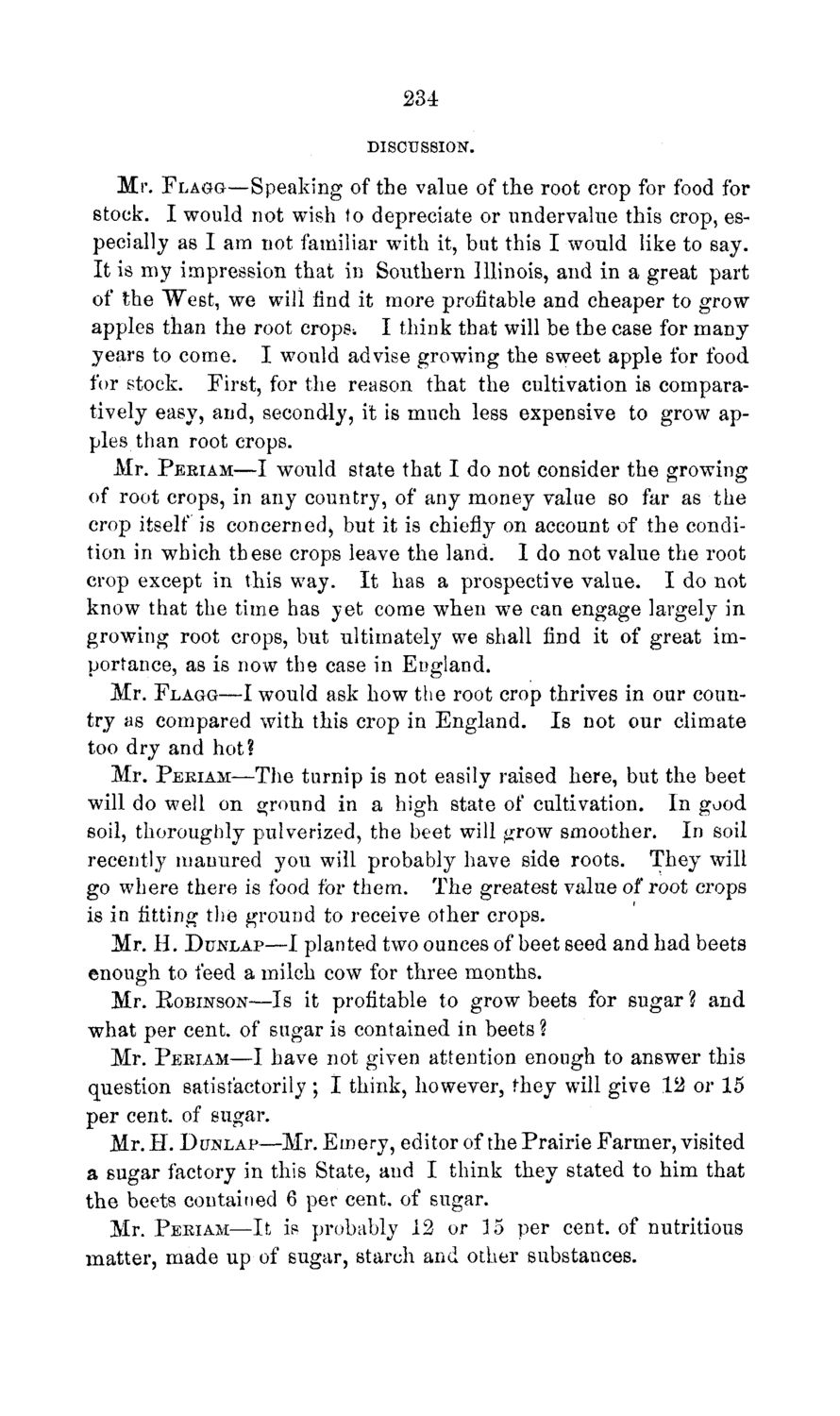| |
| |
Caption: Board of Trustees Minutes - 1869
This is a reduced-resolution page image for fast online browsing.

EXTRACTED TEXT FROM PAGE:
234 DISCUSSION. Mr. FLAOG—Speaking of the value of the root crop for food for stock. I would not wish to depreciate or undervalue this crop, especially as I am not familiar with it, bat this I would like to say. It is my impression that in Southern Illinois, and in a great part of the West, we will find it more profitable and cheaper to grow apples than the root crops-. I think that will be the case for many years to come. I would advise growing the sweet apple for food for stock. First, for the reason that the cultivation is comparatively easy, and, secondly, it is much less expensive to grow apples than root crops. Mr. PERIAM—I would state that I do not consider the growing of root crops, in any country, of any money value so far as the crop itself is concerned, but it is chiefly on account of the condition in which these crops leave the land. I do not value the root crop except in this way. It has a prospective value. I do not know that the time has yet come when wTe can engage largely in growing root crops, but ultimately we shall find it of great importance, as is now the case in England. Mr. FLAGG—I would ask how the root crop thrives in our country as compared with this crop in England. Is not our climate too dry and hot? Mr. PERIAM—The turnip is not easily raised here, but the beet will do well on ground in a high state of cultivation. In good soil, thoroughly pulverized, the beet will grow smoother. In soil recently manured you will probably have side roots. They will go where there is food for them. The greatest value of root crops is in fitting the ground to receive other crops. Mr. H. DZJNLAP—I planted two ounces of beet seed and had beets enough to feed a milch cow for three months. Mr. ROBINSON—Is it profitable to grow beets for sugar ? and what per cent, of sugar is contained in beets ? Mr. PERIAM—I have not given attention enough to answer this question satisfactorily ; I think, however, they will give 12 or 15 per cent, of sugar. Mr. H. DUNLAP—Mr. Emery, editor of the Prairie Farmer, visited a sugar factory in this State, and I think they stated to him that the beets contained 6 per cent, of sugar. Mr. PERIAM—It is probably 12 or 15 per cent, of nutritious matter, made up of sugar, starch and other substances.
| |